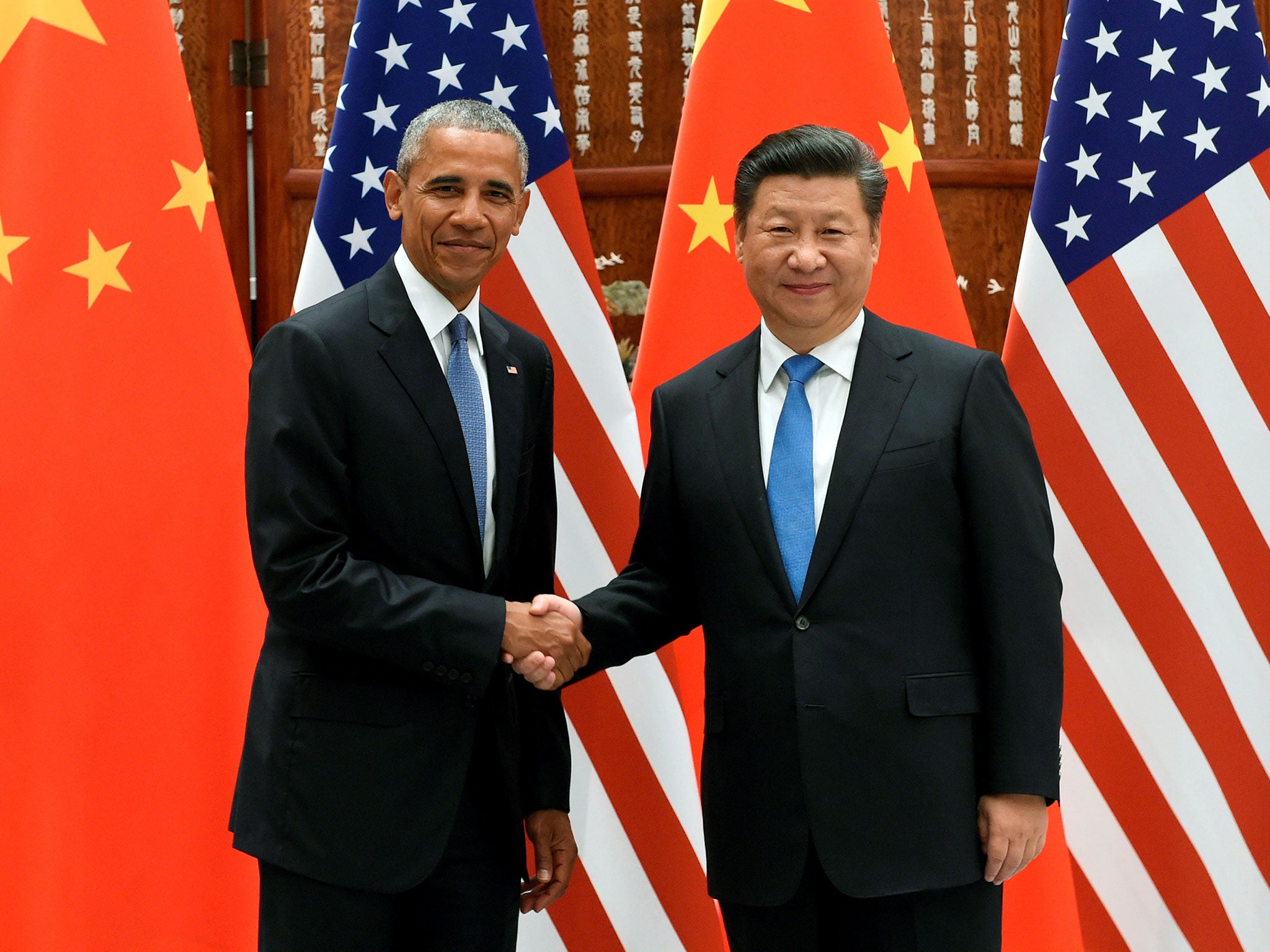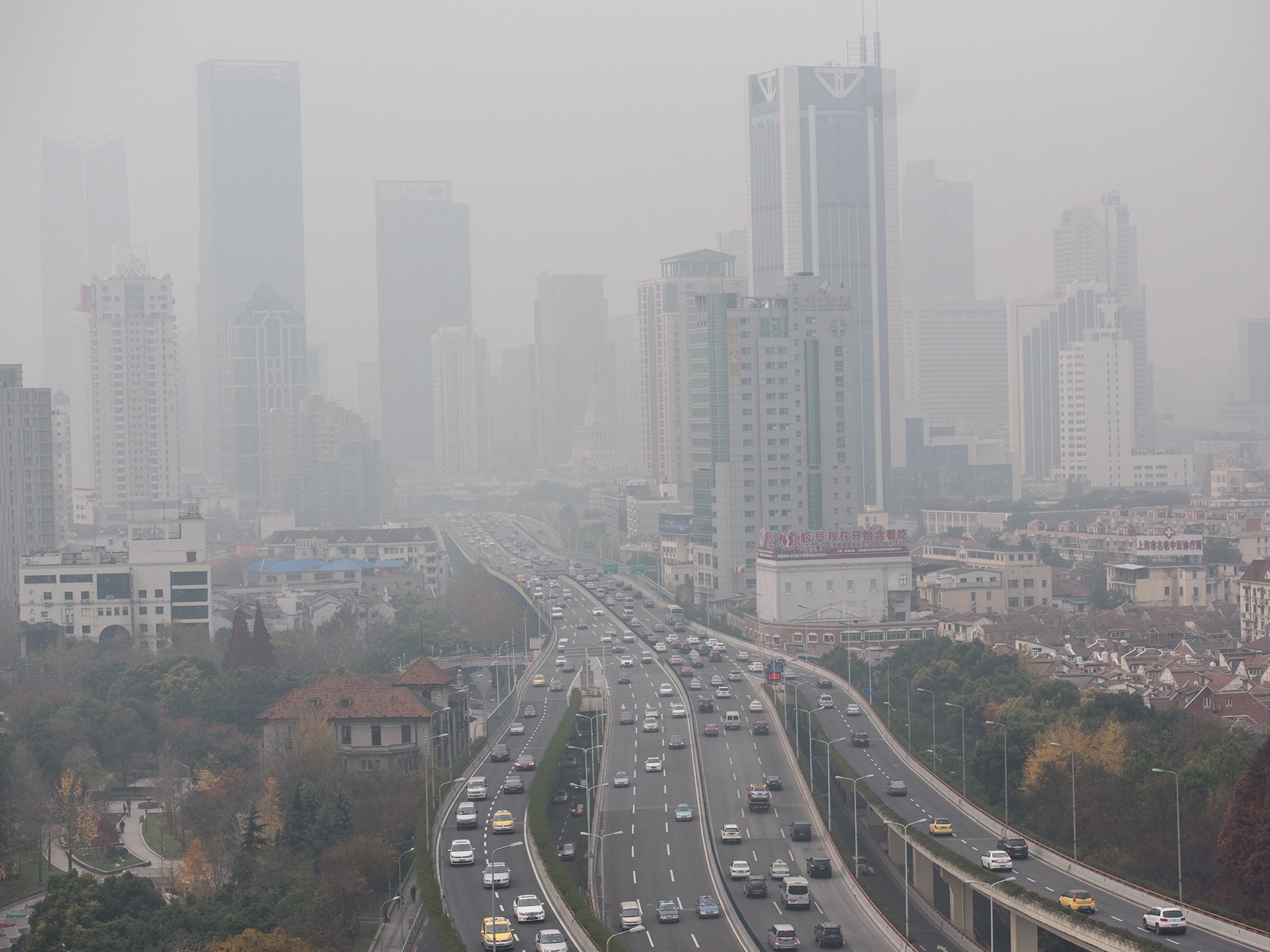Paris climate change agreement: China and US ratify deal as Barack Obama hails 'moment we decided to save our planet'
The accord brings together the world's two biggest polluters of carbon dioxide emissions

China and the US have formally ratified a historic climate change agreement drawn up in Paris to cut emissions and fight climate change. Presidents Barack Obama and Xi Jinping delivered documents to the UN Secretary-General entering their countries into the pact during a ceremony on Saturday.
The document certifies that the two countries – the world's worst polluters for carbon dioxide emissions – have taken all necessary domestic steps needed to join the agreement.
Mr Obama said the US was committed to being a global leader in the fight against climate change, hoping the Paris agreement would be remembered as the moment the world united to stop global warming.
“This is not a fight that any one country no matter how powerful can take alone,” he said. “Some day we may see this as the moment that we finally decided to save our planet.”
Mr Xi called the agreement a milestone that marks the “emergence of a global government system” for climate change. “Our response to climate change bears on the future of our people and the wellbeing of mankind.”
Erik Solheim, director of the United Nations environment programme, said the ratifications bring significant additional momentum to the drive against global warming.
“And by putting the wellbeing of our planet at the top of the agenda, the two largest economies in the world are also showing that our economic future is low-carbon and green," he said. “The fight against climate change remains difficult and urgent, but having heavy-hitters like China and the US on your side is extremely heartening.”

Andrew Steer, president and CEO of the World Resources Institute, said Saturday's announcement raised the bar for other nations.
"Cooperation between the US and China on climate change was once unimaginable but now stands as the brightest spot in their relationship,“ he added. "In joining the Paris agreement in tandem, these two leaders have reconfirmed their responsibility to lead by example.“
China and America's move has increased pressure on the British Government, which has not yet signed the landmark deal.
Camilla Toulmin, a senior fellow at the International Institute for Environment and Development, said: “There’s no reason now for the UK not to ratify the agreement as soon as possible."
The Paris agreement will only come into force after a threshold of 55 signatories producing more than half of emissions has been passed, possibly by the end of this year. It came on the sidelines of the G20 summit in Hangzhou, China, where issues including the Syrian civil war, the Ukraine conflict and the refugee crisis are on the table for discussion.
Tensions remain high between Beijing and Washington, with issues including cyber hacking, Chinese military expansion in the South China Sea and the planned deployment of an American anti-missile system in South Korea souring relations that had recently been improving.
But combating climate change is one area where both countries have stressed they can work together, producing 38 per cent of the world's man-made carbon dioxide emissions.
Both China and the US were key to reaching an agreement with 195 nations in Paris last year, where they set a 2030 deadline for emissions to stop rising and announced their “shared conviction that climate change is one of the greatest threats facing humanity".

The Chinese government announced its intention to ratify the deal in April, following 23 other countries.
Li Shuo, senior climate policy adviser for Greenpeace, said the move by the US and China was a “a very important next step toward a truly global climate agreement that will bind the two biggest emitters in the world”.
The agreement's long-term goal is to keep global warming below 2C as compared with pre-industrial times. Temperatures have already risen by almost 1C since the industrial revolution, causing a pattern of climate change scientists blame for catastrophic droughts, extreme weather and melting of polar ice caps.
Under the Paris agreement, countries are required to set national targets for reducing or reining in their greenhouse gas emissions. Although the figures are not legally binding, countries must report on their progress and give an update every five years starting in 2020.
The plan has provoked controversy over possible its impact on trade, agriculture and manufacturing in developing countries, who are “encouraged” – rather than required – to reduce emissions as their capabilities evolve over time.
Additional reporting by AP
Bookmark popover
Removed from bookmarks